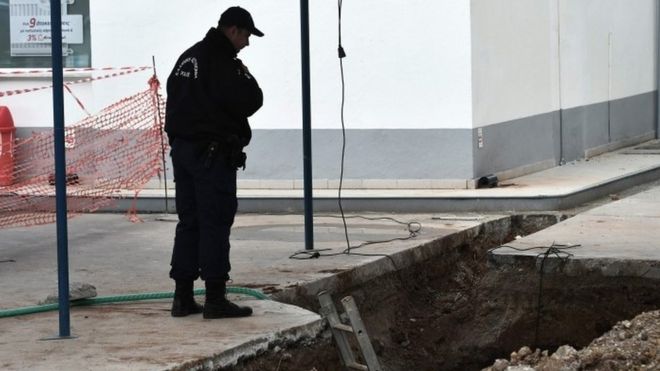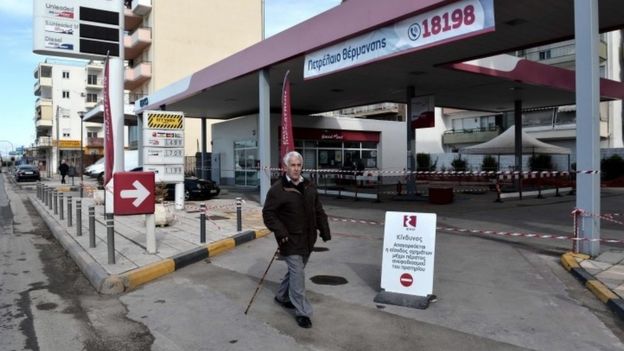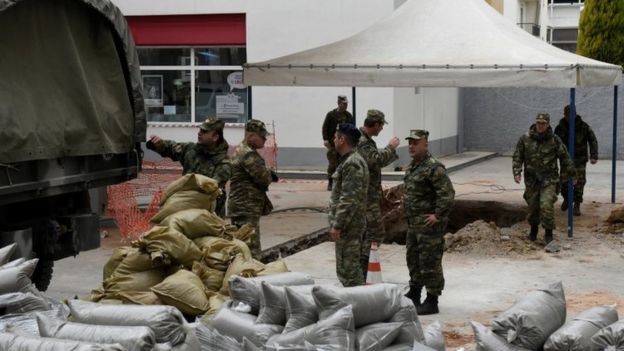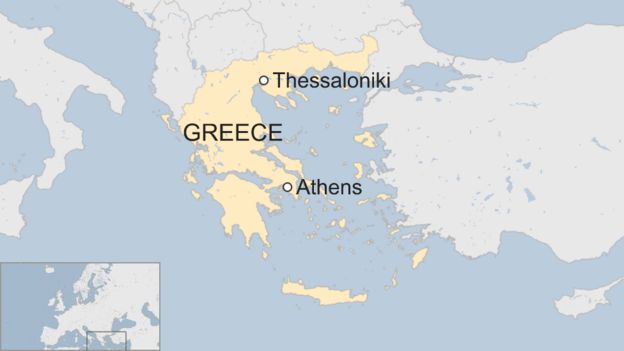Greek WW2 bomb forces huge Thessaloniki evacuation
 AFP
AFP
At least 70,000 people in the Greek city of Thessaloniki are being evacuated so that a 500lb World War Two bomb can be defused, officials say.
It is thought to be one of the largest wartime bombs to be found in urban Greece in addition to being one of the largest mass evacuations.
The bomb was discovered during road works last week and is due to be disposed of on Sunday.
Officials say it is too degraded to tell if it is German or an Allied bomb.
Residents within a radius of about 2km (1.2 miles) of the bomb will be compelled to evacuate the area between now and Sunday morning, security officials have said.
 AFP
AFP REUTERS
REUTERS
The operation has been described by one blog as the biggest evacuation of Greek civilians in peacetime. However, it is not possible to verify such a claim.
The military says an operation of this size and complexity is the first of its kind in a densely populated area of Greece and the disposal operation should take about eight hours - but may take as long as two days.
About 1,000 police officers and 300 volunteers will be deployed ahead of the disposal operation. People in the city were warned to vacate their homes several days in advance.
The evacuation is expected to cause considerable disruption in Thessaloniki, with about 450 residents of a refugee camp due to be among thousands of others being evacuated to schools, sports halls and cultural centres.
The bomb was discovered last week near a petrol station during work to expand fuel storage tanks.
A state of emergency has been declared in the three municipalities affected by the defusion operation, Thessaloniki's Deputy Governor Voula Patoulidou told the Associated Press. news agency.
"It is the first time something like this is happening in Greece,'' he said. "The transfer of all residents is mandatory and we will go door-to-door to make sure everyone leaves."

The military say they will initially try to defuse the bomb's detonator before taking the device in its entirety to an army firing range, where a decision will then be taken on how best to neutralise it.
The city's bus terminal will be closed down while trains will also stop operating. There is also expected to be some traffic disruption in addition to interruptions to church services.
One resident of the city told the Associated Press that the bomb was dropped by British and US planes targeting German rail facilities on 17 September 1944.
German forces occupied Greece from 1941 until October 1944.
No comments:
Post a Comment